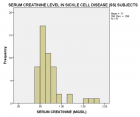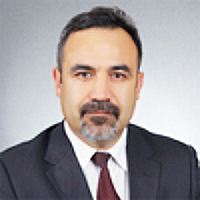Abstract
Review Article
Spiritual and religious Islamic perspectives of healing of posttraumatic stress disorder
Mevludin Hasanović*, Izet Pajević and Osman Sinanović
Published: 25 September, 2017 | Volume 1 - Issue 1 | Pages: 023-029
It is known today that psycho-trauma and PTSD cause different levels of mental and social dysfunction. Human spirituality and capacity to meet further life difficulties become severely damaged. There is wide accepted attitude today that in holistic approach in process of healing PTSD and psycho-trauma is necessary to include other professionals from community resource regarding needs of trauma victims. In Bosnia and Herzegovina after very severe war (1992-1995) as mental health professionals, we are faced with increasing number of different mental health disorders as result of severe trauma experiences. Regarding community based care orientation it is necessary to include and religion professionals. According national and religious background of majority of our population in Tuzla Canton that is Muslim, we meet spiritual needs of our clients as needs for Islamic explanation of life and death meaning. Our clients need to talk about spiritual issues in daily therapy and to practice daily religious rituals. Regarding that in this paper we tried to interface Islamic principles and it’s beneficial toward psycho-trauma and PTSD, as well as Muslim perspectives in attempt to apply spiritual practice in therapeutic tools for better efficacy in spiritual healing of mental dysfunction’s of believers who survived severe trauma, especially war trauma.
Read Full Article HTML DOI: 10.29328/journal.hda.1001004 Cite this Article Read Full Article PDF
Keywords:
Psycho-trauma; PTSD; Spirituality; Islam; Muslim; Al-salah (Islamic ritual prayer)
References
- Wilson J, Moran T. Understanding and Assessing PTSD in Religion and Spiritual Context (22-Chapter) in Assessing Psychological Trauma and PTSD: Guilford Press. New York. 1977.
- Hasnovic M, Herenda S. Post-traumatic stress disorder, depression and anxiety among family medicine residents after 1992-95 war in Bosnia and Herzegovina. Psychiatr Danub. 2008; 20: 278-286. Ref.: https://goo.gl/Y4C2L6
- Hasanović M, Sinanović O, Pajević I, Agius M. The Spiritual Approach to Group Psychotherapy Treatment of Psychotraumatized Persons in Post-War Bosnia and Herzegovina. Religions. 2011; 2: 330-344. Ref.: https://goo.gl/988aNa
- Avdibegović E, Hasanović M, Selimbašić Z, Pajević I, Sinanović O. Mental health care of psychotraumatized persons in post war Bosnia and Herzegovina-Experiences from Tuzla canton. Psychiatria Danubina. 2008; 20: 474-484. Ref.: https://goo.gl/Z4pHZ1
- Sinanović O, Avdibegović E, Hasanović M, Pajević I, Sutović A, et al. The organisation of mental health services in post-war Bosnia and Herzegovina. International Psychiatry. 2009; 6: 10-12.
- Hasanović M. Islamic Approach to Treatment of Alcoholism, Depression, Suicide and Trauma. In: Sinanović O, Hafizović R, Pajević I (Eds). Duhovnost i mentalno zdravlje. 2002; 107-124.
- Schaefer FC, Blazer DG, Koenig HG. Religious and spiritual factors and the consequences of trauma: a review and model of the interrelationship. Int J Psychiatry Med. 2008; 38: 507-524. Ref.: https://goo.gl/zUokcu
- Weaver AJ, Koenig HG, Ochberg FM. Posttraumatic stress, mental health professionals, and the clergy: a need for collaboration, training, and research. J Trauma Stress. 1996; 9: 847-856. Ref.: https://goo.gl/j6H9PE
- Agius M, Butler S, Hasanović M. Baseline self-reported functional health and vulnerability to post-traumatic stress disorder after combat deployment: prospective US military cohort study. 2012. https://goo.gl/B4c33g
- Hasanović M. Posttraumatic Stress Disorder in Bosnian Internally isplaced and Refugee Adolescents from three different regions after the 1992-1995 war in Bosnia and Herzegovina. Paediatrics Today. 2012; 8: 22-31. Ref.: https://goo.gl/kUxhqd
- Husain SA, Nair Jyotsna, Holcomb W, Reid JC, Vargas V. Stress Reaction of Children and Adolescents in War and Siege Conditions. The American Journal of Psychiatry. 1998; 155: 1718-1719. Ref.: https://goo.gl/41fCp5
- Husain SA. Resiliency in Children: Lessons from Bosnia. Mental Peace. 1999; 5: 4-8.
- Hasanović M, Sinanović O. Islamic Roots of Mental Health Care in Bosnia and Herzegovina. Mental Peace (English Edition) WIAMH. 1999; 5: 9-14.
- Pajević I. Islamski način života kao faktor psihičke stabilnosti. Magistarski rad. Univerzitet u Tuzli, Medicinski fakultet, Tuzla; 1999.
- Hasanović M, Pajević I. Religious moral beliefs as mental health protective factor of war veterans suffering from PTSD, depressiveness, anxiety, tobacco and alcohol abuse in comorbidity. Psychiatr Danub. 2010; 22: 203-210. Ref.: https://goo.gl/6zFLTL
- Hasanović M, Pajević I. Religious moral beliefs inversely related to trauma experiences severity and depression severity among war veterans. J Relig Health. 2015; 52: 730-739. Ref.: https://goo.gl/j9zDiV
- Hasanović M, Pajević I. Religious Moral Beliefs Inversely Related to Trauma Experiences Severity and Presented Posttraumatic Stress Disorder among Bosnia and Herzegovina War Veterans. J Relig Health. 2015; 54: 1403-1415. Ref.: https://goo.gl/jdp7yY
- Pajević I, Sinanović O, Hasanović M. Association of Islamic Prayer with Psychological Stability of Bosnian War Veterans. J Relig Health. 2017. Ref.: https://goo.gl/puKt3n
- Richards PS, Sanders PW, Lea T, McBride JA, Allen GEK. Bringing spiritually oriented psychotherapies into the health care mainstream: A call for worldwide collaboration. Spirituality in Clinical Practice. 2015; 2: 169-179. Ref.: https://goo.gl/VBiv1j
- Saniotis A. Understanding mind/body medicine from Muslim Religious practices of Salah and Dhikr. J Relig Health. 2015. Ref.: https://goo.gl/jkE2P7
- Chishti AGM. The book of sufi healing. New York: Inner Traditions International, Limited. 1985.
- Abdul-Hamid WK, Hughes JH. Integration of religion and spirituality into trauma psychotherapy: An example in Sufism? EMDRIA. 2015; 9: 150-156. Ref.: https://goo.gl/chpksh
- Shaffii M. Freedom from the self. Human Science Press, New York, 1985. 240.
- Ajmal M. Muslim Contributions to Psychotherapy and other essays. National Institute of Psychology. 1986; 1-10.
- Deikman AJ. Sufism and Psychiatry. J Nerv Ment Dis. 1977; 165: 318-329. Ref.: https://goo.gl/ZX1JiJ
- Al-Rawi S, Fetters MD. Traditional Arabic and Islamic medicine: A conceptual model for clinicians and researchers. Glob J Health Sci. 2012; 4: 164-169. Ref.: https://goo.gl/ezTr1P
- Pajević I. Govor koji liječi. Hikmet. 1998; 112-114.
- Abou El AzayemGM. Role of the Mosque in Confronting the Epidemic of Substance Abuse. Mental Peace, The North American Edition. 1995; 4: 27-31.
- Sinanović O, Hafizović R, Pajević I. Duhovnost i mentalno zdravlje. Sarajevo: IP Svjetlost. ISBN: 9958-10-444-X. COBISS 10463494. 2002.
- Sinanović O. Ovisnost o drogama - uzroci i posljedice, prevencija i liječenje. Multidisciplinarni pristup. Tuzla: Behram-begova Medresa u Tuzli i Medicinski fakultet Univerziteta u Tuzli. ISBN 9958-698-03-X. COBISS/BiH-ID 9340166. 2001.
- Al Radi OM. An Islamic Approach to Psychotherapy. Mental Peace, The North American Edition. 1995; 4: 23-26.
- Pajević I, Hasanović M. Uloga džamije u očuvanju mentalnog zdravlja zajednice. Psihijatrija u zajednici; Psihosocijalne posljedice rata u Bosni i Hercegovini, Zbornik radova Sedmih (Prvih poslijeratnih) Psihijatrijskih dana Bosne i Hercegovine. 1999; 6: 64-68.
- Haque A, Khan F, Keshavarzi K, Rothman AE. Integrating Islamic Traditions in Modern Psychology: Research Trends in Last Ten Years. J Muslim Mental Health. 2016; 10: Ref.: https://goo.gl/gBLvX5
- American Psychiatry Association: Diagnostic and Statistic Manual of Mental Disorder. Third Edition. Washington, DC, American Psychiatry Association. 1980; 247-251.
- American Psychiatry Association: Diagnostic and Statistic Manual of Mental Disorder. Fourth Edition. Washington, DC, American Psychiatry Association, 1994; 424-429.
- Hasanović M, Pajević I, Sinanović O. The Role of Spiritual Dimension in Mental Health. Acta Medica Saliniana, 1998; 2: 25-34.
- Hasanović M, Sinanović O, Pajević I, Avdibegović E, Sutović A. Post-war mental health promotion in Bosnia-Herzegovina. Psychiatria Danubina. 2006; 18: 74-78. Ref.: https://goo.gl/LxdWmC
- Hasanović M. Psychological consequences of war-traumatized children and adolescents in Bosnia and Herzegovina. Acta Medica Academica. 2011; 40: 45-66. Ref.: https://goo.gl/eRpTwi
Similar Articles
-
Spiritual and religious Islamic perspectives of healing of posttraumatic stress disorderMevludin Hasanović*,Izet Pajević,Osman Sinanović. Spiritual and religious Islamic perspectives of healing of posttraumatic stress disorder. . 2017 doi: 10.29328/journal.hda.1001004; 1: 023-029
-
The different levels of depression and anxiety among Pakistani professionalsSehrish Hassan*,Waqar Husain. The different levels of depression and anxiety among Pakistani professionals. . 2020 doi: 10.29328/journal.ida.1001014; 4: 012-018
-
Identifying mothers experiencing emotional distress in the neonatal intensive care unit. Application of PPTSD questionnaire in a Greek NICU populationKarkani Anastasia*,Theodoraki Martha,Paraskeva Natasa,Kouros Pavlos Aristidis,Pantelis Perdikaris,Rosenblum Ouriel,Mazet Philippe. Identifying mothers experiencing emotional distress in the neonatal intensive care unit. Application of PPTSD questionnaire in a Greek NICU population. . 2022 doi: 10.29328/journal.ida.1001033; 6: 025-031
-
Optimizing Treatment of Depression, Trauma, and Anxiety Disorders through Neurophysiological InterventionsKees Blasé*. Optimizing Treatment of Depression, Trauma, and Anxiety Disorders through Neurophysiological Interventions. . 2025 doi: 10.29328/journal.ida.1001046; 9: 027-029
Recently Viewed
-
Unveiling Disparities in WHO Grade II Glioma Care among Physicians in Middle East and North African (MENA) Countries: A Multidisciplinary SurveyFatimah M Kaabi,Layth Mula-Hussain*,Shakir Al-Shakir,Sultan Alsaiari,Leonidas Chelis,Renda AlHabib,Sara Owaidah,Renad Subaie,Marwah M Abdulkader,Ibrahim Alotain. Unveiling Disparities in WHO Grade II Glioma Care among Physicians in Middle East and North African (MENA) Countries: A Multidisciplinary Survey. Arch Cancer Sci Ther. 2026: doi: 10.29328/journal.acst.1001048; 10: 001-005
-
Maximizing the Potential of Ketogenic Dieting as a Potent, Safe, Easy-to-Apply and Cost-Effective Anti-Cancer TherapySimeon Ikechukwu Egba*,Daniel Chigbo. Maximizing the Potential of Ketogenic Dieting as a Potent, Safe, Easy-to-Apply and Cost-Effective Anti-Cancer Therapy. Arch Cancer Sci Ther. 2025: doi: 10.29328/journal.acst.1001047; 9: 001-005
-
Analysis and Control of a Glucose-insulin Dynamic ModelLakshmi N Sridhar*. Analysis and Control of a Glucose-insulin Dynamic Model. Ann Clin Endocrinol Metabol. 2026: doi: 10.29328/journal.acem.1001033; 10: 010-016
-
Transumbilical Single-incision Hiatal Hernia Repair and Nissen Fundoplication in situs Inversus Totalis: A Rare Case ReportQing Cao,Chen Kang,Kang Gu,Yin Peng,Yang Lv,Xu-Zhong Ding,Peng Li*. Transumbilical Single-incision Hiatal Hernia Repair and Nissen Fundoplication in situs Inversus Totalis: A Rare Case Report. Adv Treat ENT Disord. 2026: doi: 10.29328/journal.ated.1001017; 10: 001-003
-
NAD⁺ Biology in Ageing and Chronic Disease: Mechanisms and Evidence across Skin, Fertility, Osteoarthritis, Hearing and Vision Loss, Gut Health, Cardiovascular–Hepatic Metabolism, Neurological Disorders, and MuscleRizwan Uppal,Umar Saeed*,Muhammad Rehan Uppal. NAD⁺ Biology in Ageing and Chronic Disease: Mechanisms and Evidence across Skin, Fertility, Osteoarthritis, Hearing and Vision Loss, Gut Health, Cardiovascular–Hepatic Metabolism, Neurological Disorders, and Muscle. Ann Clin Endocrinol Metabol. 2026: doi: 10.29328/journal.acem.1001032; 10: 001-009
Most Viewed
-
Impact of Latex Sensitization on Asthma and Rhinitis Progression: A Study at Abidjan-Cocody University Hospital - Côte d’Ivoire (Progression of Asthma and Rhinitis related to Latex Sensitization)Dasse Sery Romuald*, KL Siransy, N Koffi, RO Yeboah, EK Nguessan, HA Adou, VP Goran-Kouacou, AU Assi, JY Seri, S Moussa, D Oura, CL Memel, H Koya, E Atoukoula. Impact of Latex Sensitization on Asthma and Rhinitis Progression: A Study at Abidjan-Cocody University Hospital - Côte d’Ivoire (Progression of Asthma and Rhinitis related to Latex Sensitization). Arch Asthma Allergy Immunol. 2024 doi: 10.29328/journal.aaai.1001035; 8: 007-012
-
Causal Link between Human Blood Metabolites and Asthma: An Investigation Using Mendelian RandomizationYong-Qing Zhu, Xiao-Yan Meng, Jing-Hua Yang*. Causal Link between Human Blood Metabolites and Asthma: An Investigation Using Mendelian Randomization. Arch Asthma Allergy Immunol. 2023 doi: 10.29328/journal.aaai.1001032; 7: 012-022
-
An algorithm to safely manage oral food challenge in an office-based setting for children with multiple food allergiesNathalie Cottel,Aïcha Dieme,Véronique Orcel,Yannick Chantran,Mélisande Bourgoin-Heck,Jocelyne Just. An algorithm to safely manage oral food challenge in an office-based setting for children with multiple food allergies. Arch Asthma Allergy Immunol. 2021 doi: 10.29328/journal.aaai.1001027; 5: 030-037
-
Snow white: an allergic girl?Oreste Vittore Brenna*. Snow white: an allergic girl?. Arch Asthma Allergy Immunol. 2022 doi: 10.29328/journal.aaai.1001029; 6: 001-002
-
Cytokine intoxication as a model of cell apoptosis and predict of schizophrenia - like affective disordersElena Viktorovna Drozdova*. Cytokine intoxication as a model of cell apoptosis and predict of schizophrenia - like affective disorders. Arch Asthma Allergy Immunol. 2021 doi: 10.29328/journal.aaai.1001028; 5: 038-040

If you are already a member of our network and need to keep track of any developments regarding a question you have already submitted, click "take me to my Query."















































































































































